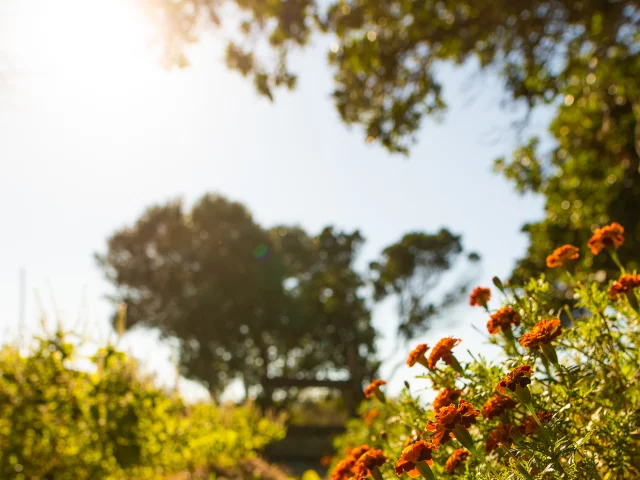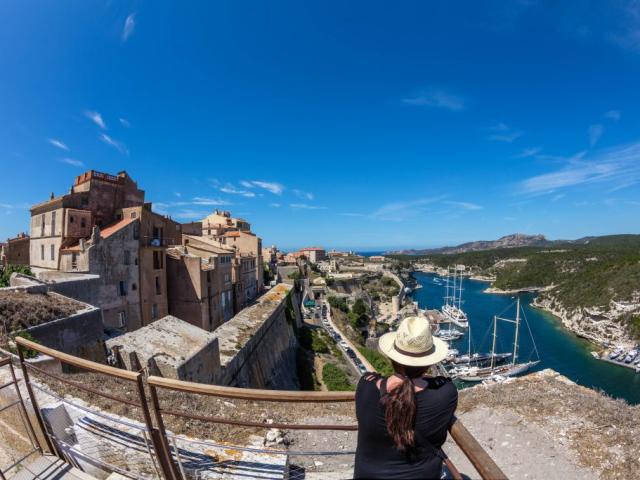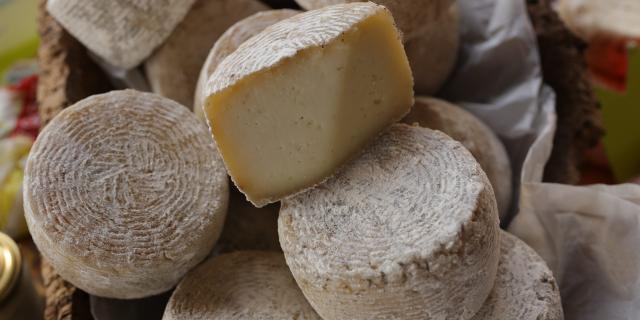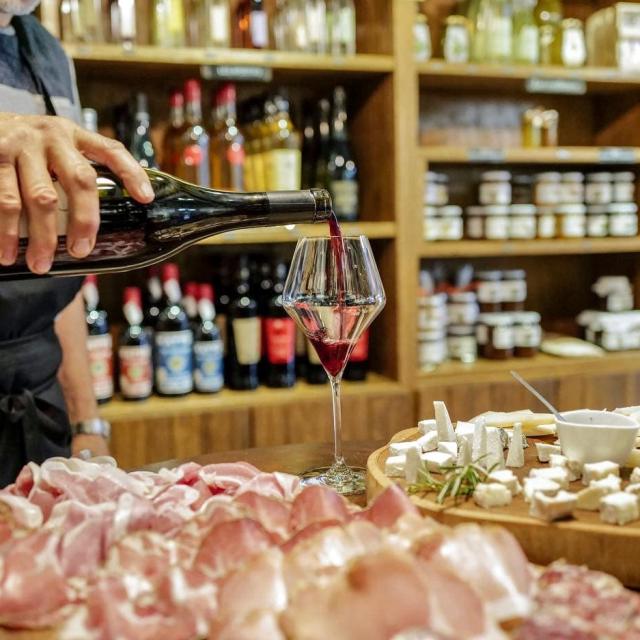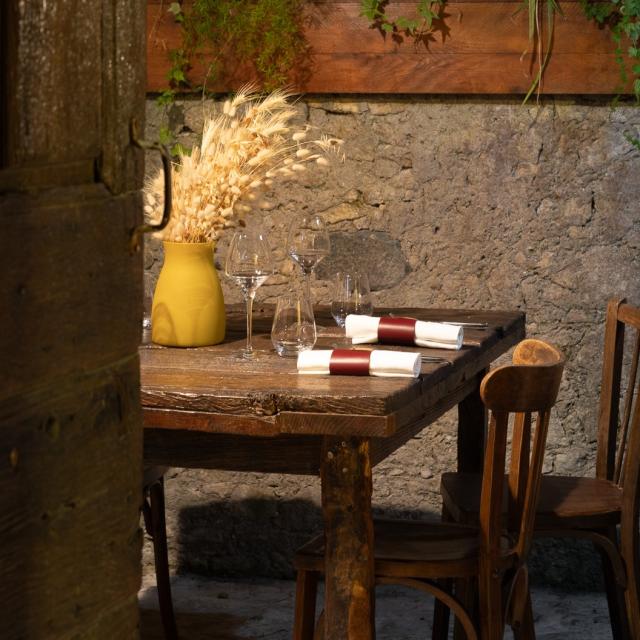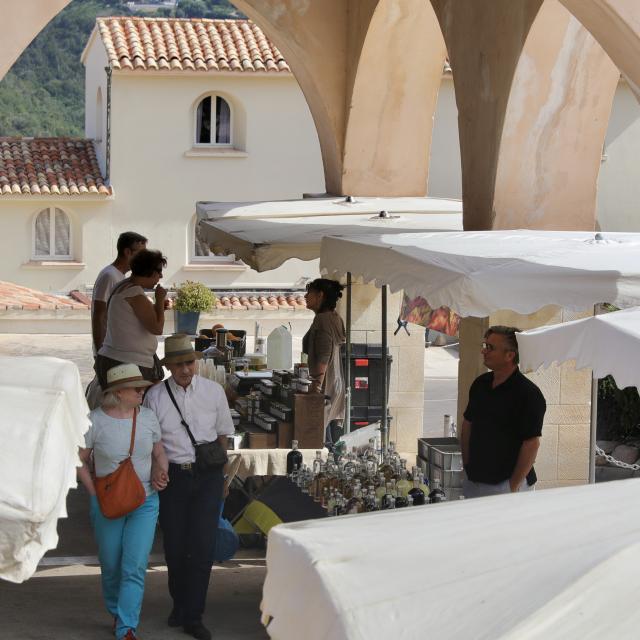While you can buy directly from producers, you can also consume locally by sampling some of the products offered by Bonifacian restaurateurs and selected by their chefs. Note that this approach also applies to breakfasts at certain hotels, and to hotel and campsite boutiques. What’s more? The network guarantees that you will be informed by a committed professional who actively participates in the network, and who will be able to answer all your questions about the origin and manufacture of the product concerned.
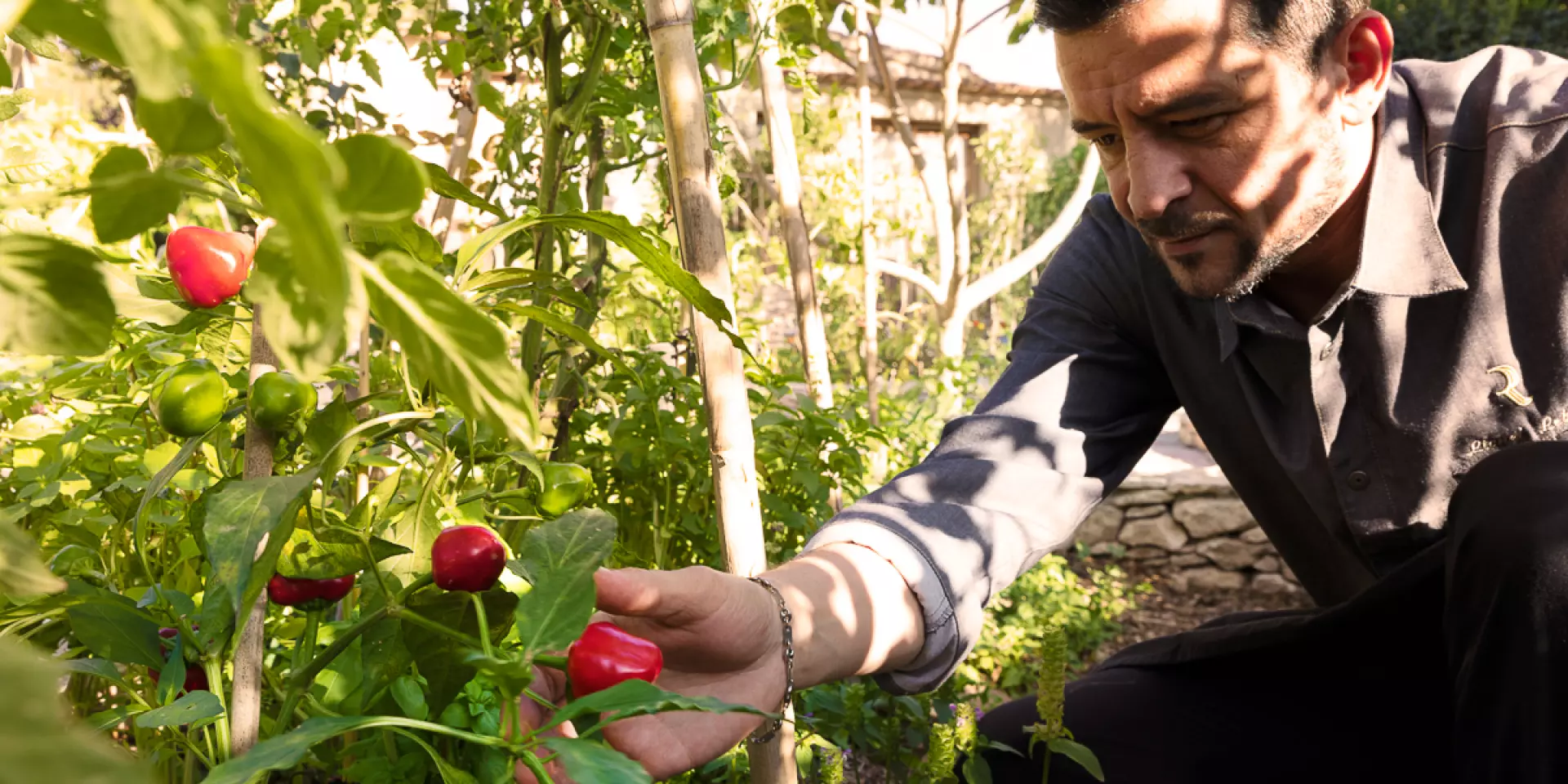 Chef Restaurant A Cheda Cueillette Bonifacio
Chef Restaurant A Cheda Cueillette BonifacioCommitted restaurants and hotels
Eat local from breakfast to dinnerOrganic and sustainable wineries
Exceptional grape varieties, exceptional winesIn the past, at the end of the 18th century, Bonifacio’s vineyards were very extensive, covering the whole of the limestone part of our territory. But around 1888, in Corsica as in France, a small pest called phylloxera appeared and completely destroyed all the vines. The land remained conducive to the development of exceptional vines. Today, three main estates share this treasure of Mother Nature, including the Zuria estate and the Buzzo vineyard, part of the ” Produit local ” network.
Local fishing
a traditionFishing has always existed in Bonifacio. Many of the Navy’s families made a living from this trade, which they passed on to the people of Bonifacio and the surrounding villages. Today, the town has preserved its fishing tradition, with more than 18 fishermen selling their catch every day at the Maison des pêcheurs, on the Quai Nord or to Bonifacio restaurateurs. These fish and shellfish are the fruit of sustainable fishing, an obvious expression of the short circuit specific to the industry, but also the desire of professionals united in an association who are keen to guarantee the traceability of their catch.
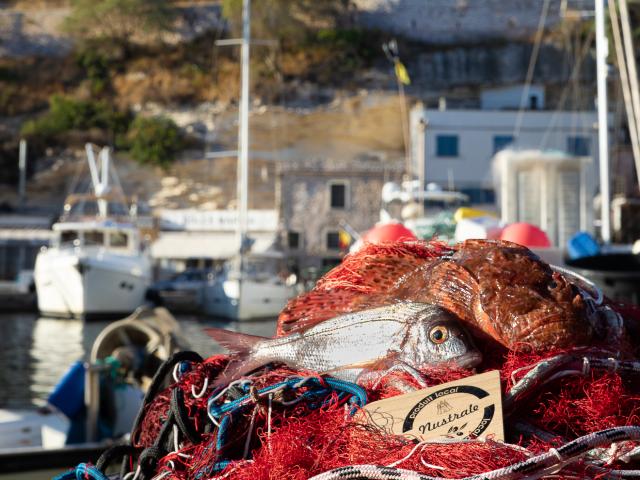 Produit Local Poisson 2
Produit Local Poisson 2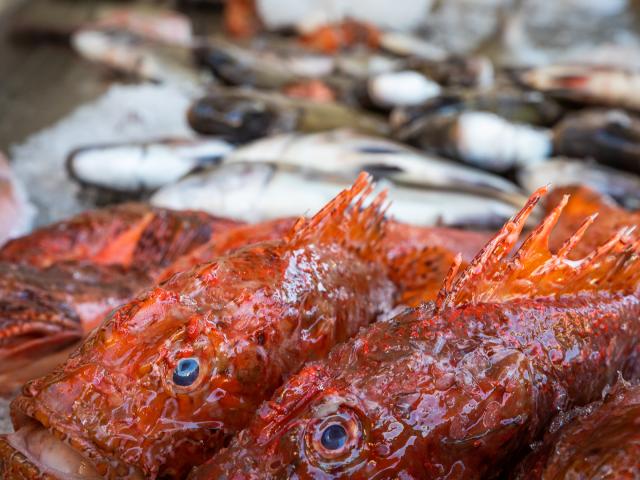 Produit Local Poisson
Produit Local Poisson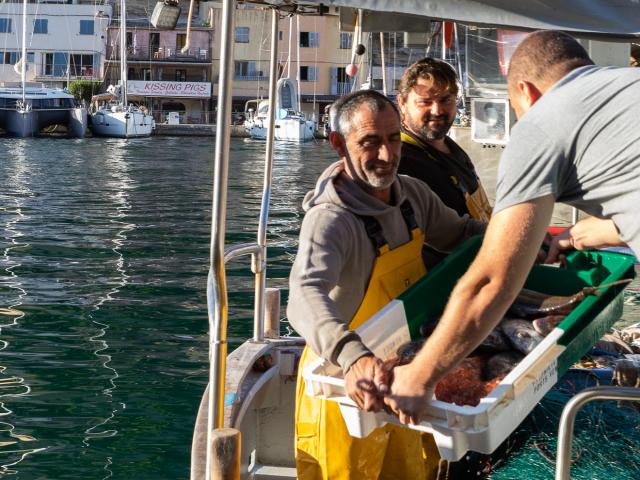 Pecheurs Bonifacio
Pecheurs BonifacioMarket gardening and by-products
Fruits, vegetables, eggs, flowers... to be eaten without moderationBonifacia’s soil and climate offer a wealth of opportunities for market gardening. In full development, this activity is expanding more and more around the town to enable professionals to grow better crops. In other words, in a sustainable or organic way, by staying as close as possible to consumers through direct sales, local distribution or trade with restaurateurs and hoteliers. But growing fruit and vegetables also means transforming the produce of the land into jams, syrups, mezzes, chutneys and flavored olive oils. Original, healthy products, with surprising but totally delicious combinations. Look out for these products and taste them at the Friday market or at L’Ortulinu, an organic boutique (bread, fruit and vegetables, olive oils, home-made pastries…) and member of the network.
The cheeses
Ancestral know-howWhether from dairies, cooperatives or breeders, all Corsican cheeses offer distinct tastes, pleasures and characters. Among them, the farmhouse cheeses are more remarkable and full-bodied than the others. They are all made from raw goat’s or sheep’s milk, and represent a confidential production that is rarely exported. So it’s in Corsica, and rarely elsewhere, that you’ll have the opportunity to sample the widest range. This diversity is due to the island’s rich flora, its topography between plains and mountains and, of course, the know-how of the shepherds who work the milk in their ancestral way.
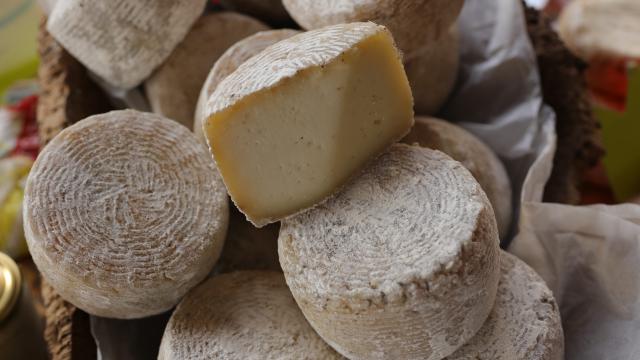 Fromages 3 Rotated
Fromages 3 Rotated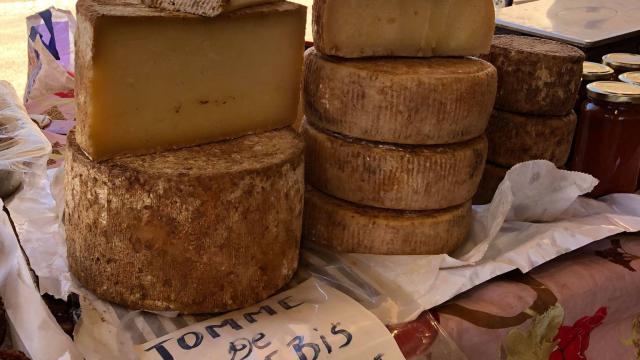 Fromages 1
Fromages 1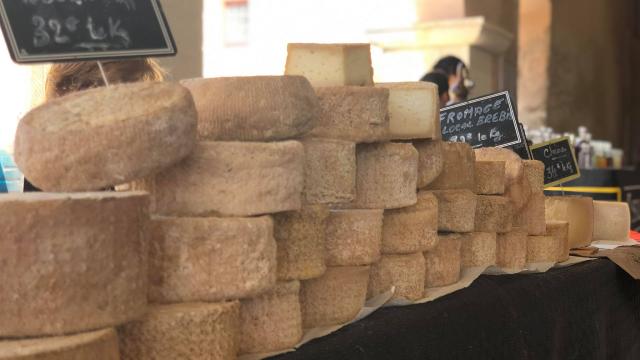 Fromage 2
Fromage 2Liqueurs
Local flavours guaranteedBonifacio’s wine enjoys an excellent reputation, but the myrtle liqueur that is served at the end of a meal is also one of the island’s best-known digestifs. In Bonifacio, you’ll find artisan distilleries that work with the flavours of the maquis and surrounding nature: myrtle, of course, but also arbutus, chestnuts, hazelnuts… In the form of brandies, liqueurs, sweet wines or creams, the drinks on offer are based on ancestral recipes, sometimes adapted, sometimes delivered as they are to your palate.
Honey
Original heritageAlong with wine,olive oil and even oysters, honey has always been part of Corsica’s food and commercial heritage. Over 2,000 years ago, the Romans were already exporting honey and wax, with ease of transport since the city of Rome is only 200 km east of Corsica. Today, Corsican honeys are as sought-after as ever, and enjoy an AOP (Appellation d’Origine Protégée) guaranteeing the superior quality of several different honeys.
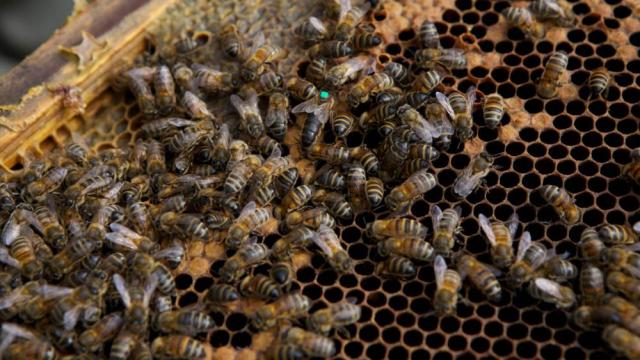 Miel A Bonifacio
Miel A Bonifacio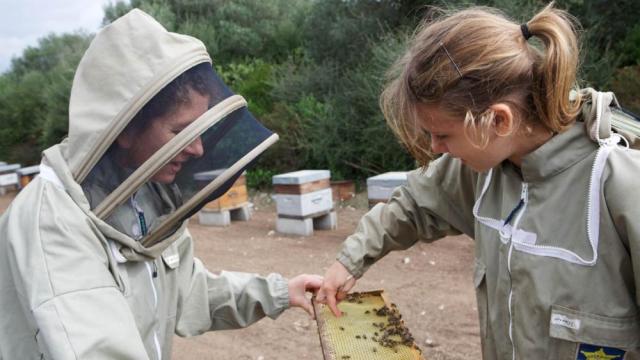 Nathalie Bourras
Nathalie BourrasOlive oil
A booming productWild since Neolithic times, then cultivated during the Roman and Genoese periods, the olive tree and its oil reflect 3,000 years of history! And although olive-growing was gradually abandoned in the 19th and 20th centuries, since the 1970s and 80s, it has been enjoying a renaissance, thanks to the involvement of passionate and committed Corsicans.Depending on the producer, olives are either picked “from the tree” mechanically, or recovered after their natural fall in nets stretched between the trees or laid on the ground – this is the “old-fashioned” harvest. Harvested earlier, when the fruit is still green, it contains more water, giving the oil a fruity, fresh taste (with hints of green apple). In contrast, oil from olives harvested “à l’ancienne”, when fully ripe and black, is particularly mild, with no bitterness or spiciness.


